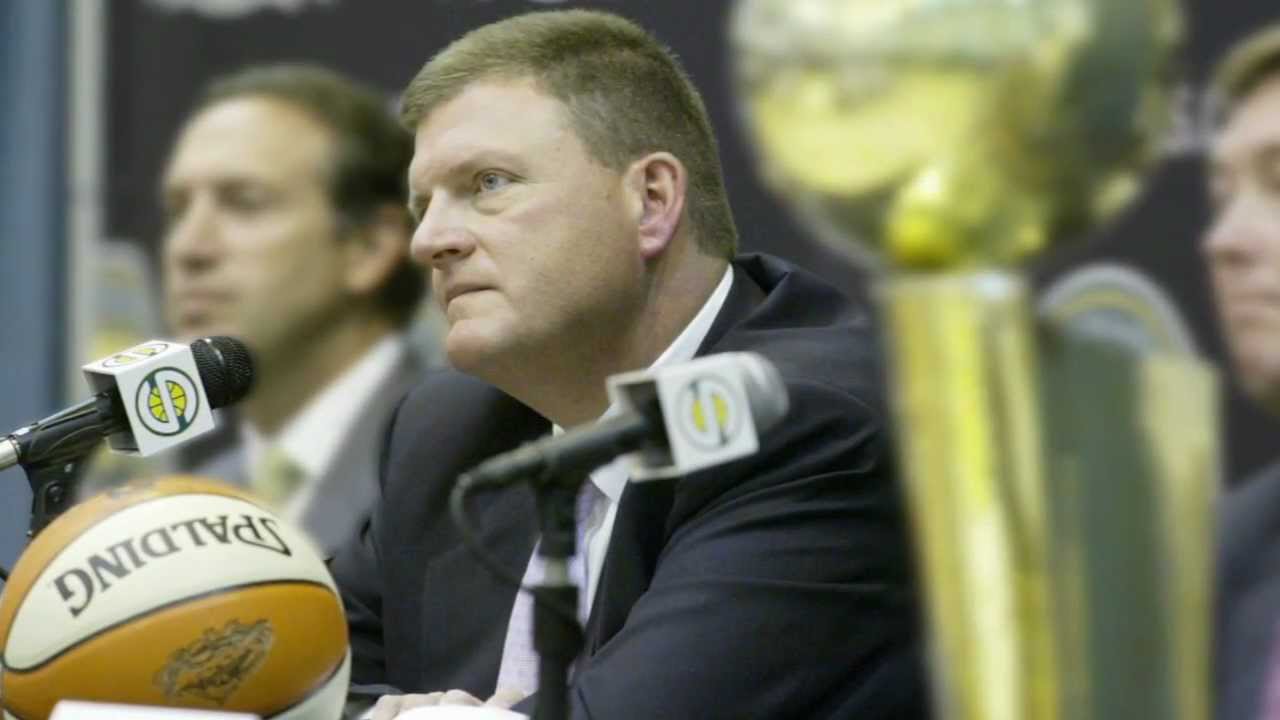Director: Jason Reid,
Watched: Online,
Rating: 4/5.
The most popular documentary in Seattle right now tells the story of greedy capitalists lying to the American public while pocketing millions of dollars with corporate help and then cowardly retreating behind the walls of their empires to leave in their wake a hurt, wounded, and ignored citizenry. No I’m not talking about Capitalism: A Love Story, I’m talking about a locally made labor of love called Sonicsgate, the sad story of the hijacking of the Seattle Sonics by a lying bunch of faux cowboys from Oklahoma.
Director Jason Reid and his filmmaking partners made this film for less than $10,000 and yet he is giving it away online, free, to anyone who wants to go to their website, sonicsgate.org, and watch the film immediately with a click of a mouse. So far, in a little more than a week, 30,000 people have viewed the film. If you were either a casual or hardcore Sonic fan, you were no doubt just as bewildered as I was by the tragic demise of the longest existing professional sports team in Seattle, and, along with the Seattle Storm, the only one to ever win a world championship. The Storm was saved at the last minute, but the Sonics were lost and are gone forever.
Sonicsgate is a thorough, well-organized, and professional piece of work, even though the filmmakers had little game footage to work with. But they have plenty of clips from local newscasts, press conferences, rallies, home movie footage and interviews with several informed and eloquent insiders and observers, including former Sonic great Gary Payton, radio announcer Kevin Calabro, columnists Art Thiel and Steve Kelley, and the only person inside the Sonics management with the nerve to go on camera, Wally Walker. They also interviewed at length renowned author Sherman Alexie, a longtime Sonic season ticket holder who acts as the heart and soul of every passionate fan of the game of basketball.
The story told in Sonicsgate is an almost unbelievable tale of betrayal and backstabbing, starting with local coffee king Howard Schultz, who whined about the money he and the co-owners were losing on the team and yet made a profit of 90-million dollars when they sold the organization to Oklahoma City investor, Clay Bennett. Bennett is merely a greedy, lying hypocrite, but Schultz is even worse: an unctuous, heartless, soulless corporate vampire who sold the legacy and the love of the Sonics down the river because his profit margin wasn’t equal to the five-dollar cups of coffee he sells.
But there are other bad actors in this tawdry tale. David Stern, the NBA commissioner, comes off as a greasy, arrogant third-rate politician, pitting economically strapped cities against each other in a race to see which can supply the most taxpayer dollars to build Disney-esque basketball arenas to house his personal fiefdom, the NBA. It turns out he and Bennett are two bugs in a rug, exchanging obsequious emails, practically insuring that Oklahoma City will get the Sonics long before the final two years are up in the lease the team must honor with Seattle.
This little matter of the lease is the last thread in the unraveling of the team that fans, politicians and attorneys cling to in the hopes that they can find a new buyer before the two years are up. But then, unbelievably, with an hour to go before a verdict in the case of the city versus Bennett, with a 50-50 chance of winning despite the Seattle lawyers being mostly outmaneuvered by the Bennett team, up steps Mayor Greg Nickels to deliver a devastating announcement. The city sells out the Sonics for 75-million dollars, pocketing the money into the city’s wallet and letting Bennett and his greedy yahoos take the team away immediately.
Spoiler alert: The final, incomprehensible nail in the coffin comes in a last on-screen graphic: Clay Bennett not only took the team but also the team’s history with him. That’s right, the Sonics 1979 World Championship trophy is now in Oklahoma City.

